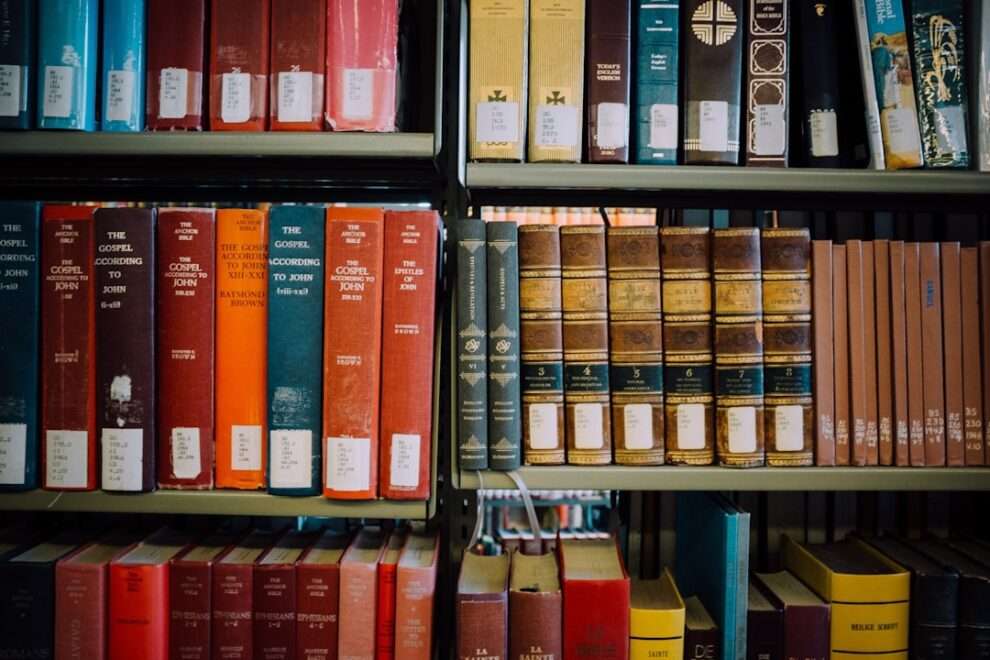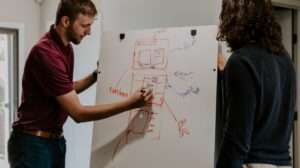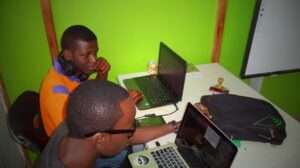Galileo Galilei, born in 1564 in Pisa, Italy, was a renowned astronomer, physicist, and mathematician. He is often referred to as the “father of modern science” due to his significant contributions to the fields of astronomy and physics. Galileo’s work revolutionized our understanding of the universe and laid the foundation for the Scientific Revolution. His discoveries challenged the prevailing beliefs of his time and sparked a conflict with the Catholic Church. Despite facing persecution, Galileo’s legacy continues to shape our understanding of the natural world.
Early Life and Education of Galileo Galilei
Galileo was born into a family of musicians and artists. His father, Vincenzo Galilei, was a musician and music theorist, while his mother, Giulia Ammannati, came from a noble background. Although his family had hoped he would pursue a career in medicine or law, Galileo showed an early interest in mathematics and science.
Galileo received his early education at a monastery school in Vallombrosa before enrolling at the University of Pisa to study medicine. However, he soon became fascinated with mathematics and physics and shifted his focus to these subjects. Despite his passion for science, Galileo’s father was not supportive of his career choice. Nevertheless, Galileo continued to pursue his interests and eventually became a professor of mathematics at the University of Pisa.
Galileo’s Contributions to Astronomy
One of Galileo’s most significant contributions was his observations of celestial bodies using a telescope. In 1609, he built his own telescope and began studying the moon, sun, and stars. Through his observations, Galileo discovered that the moon had mountains and craters, challenging the prevailing belief that celestial bodies were perfect and unchanging.
Galileo also observed sunspots on the surface of the sun, which contradicted the Aristotelian view that the sun was a perfect sphere. Additionally, he discovered four moons orbiting Jupiter, providing evidence that not all celestial bodies revolved around the Earth. These observations supported the heliocentric model of the solar system proposed by Nicolaus Copernicus.
Galileo’s discoveries in astronomy were groundbreaking and challenged the geocentric model of the universe, which placed Earth at the center. His observations provided evidence for the heliocentric model and laid the foundation for our modern understanding of the solar system.
Galileo’s Invention of the Telescope
| Year | Event |
|---|---|
| 1609 | Galileo invents the telescope |
| 1610 | Galileo observes the moons of Jupiter |
| 1610 | Galileo publishes “Sidereus Nuncius” describing his observations |
| 1611 | Galileo observes the phases of Venus |
| 1616 | Galileo is warned by the Catholic Church to stop teaching the heliocentric theory |
| 1632 | Galileo publishes “Dialogue Concerning the Two Chief World Systems” defending the heliocentric theory |
| 1633 | Galileo is tried by the Inquisition and forced to recant his beliefs |
| 1642 | Galileo dies |
Galileo’s invention of the telescope was a pivotal moment in the history of science. His telescope consisted of a convex objective lens and a concave eyepiece, which allowed for magnification and clearer observations of distant objects.
With his telescope, Galileo was able to observe celestial bodies in greater detail than ever before. He discovered that Venus had phases, similar to those of the moon, which supported the heliocentric model. He also observed Saturn’s rings, although he initially mistook them for two separate objects.
The impact of Galileo’s telescope on astronomy and scientific discovery cannot be overstated. It allowed scientists to observe celestial bodies with unprecedented clarity and precision, leading to new discoveries and advancements in our understanding of the universe.
Galileo’s Conflict with the Catholic Church
Galileo’s discoveries and support for the heliocentric model brought him into conflict with the Catholic Church. At the time, the Church held a geocentric view of the universe based on biblical interpretations. Galileo’s findings challenged this belief and were seen as heretical.
In 1616, Galileo was warned by church authorities not to promote or defend Copernicanism. However, he continued to advocate for the heliocentric model in his writings and public lectures. In 1633, Galileo was summoned to Rome and put on trial by the Inquisition. He was accused of heresy and forced to recant his beliefs.
Galileo’s trial and condemnation by the Catholic Church had a profound impact on his life and work. He was placed under house arrest for the remainder of his life and his books were banned. Despite this persecution, Galileo continued to write and conduct scientific research in secret.
Galileo’s Discoveries in Physics

In addition to his contributions to astronomy, Galileo made significant discoveries in the field of physics. He conducted experiments with inclined planes and rolling balls, which led to his formulation of the laws of motion. Galileo’s experiments demonstrated that objects of different weights fall at the same rate, contrary to the prevailing belief at the time.
Galileo also made important contributions to the study of gravity. He proposed that all objects fall towards the Earth at a constant rate, regardless of their mass. This idea challenged Aristotle’s theory that heavier objects fell faster than lighter ones.
Galileo’s discoveries in physics laid the foundation for Isaac Newton’s laws of motion and universal gravitation. His experiments and observations revolutionized our understanding of how objects move and interact with each other.
Galileo’s Influence on the Scientific Revolution
Galileo played a crucial role in the Scientific Revolution, a period of intellectual and scientific advancements that took place from the 16th to the 18th century. His work challenged traditional beliefs and paved the way for a new scientific method based on observation, experimentation, and mathematical analysis.
Galileo’s ideas and discoveries inspired other scientists and thinkers of the time, such as Johannes Kepler and Isaac Newton. Kepler used Galileo’s observations of planetary motion to develop his laws of planetary motion, while Newton built upon Galileo’s work on motion and gravity to formulate his laws of motion and universal gravitation.
Furthermore, Galileo’s emphasis on empirical evidence and mathematical analysis laid the foundation for modern scientific inquiry. His approach to science, which prioritized observation and experimentation, continues to be the basis for scientific research today.
Galileo’s Legacy in Modern Science
Galileo’s work continues to have a profound impact on modern science. His discoveries and contributions to astronomy and physics laid the foundation for our understanding of the universe. The heliocentric model of the solar system, supported by Galileo’s observations, is now widely accepted.
Furthermore, Galileo’s emphasis on empirical evidence and mathematical analysis set the stage for the scientific method, which remains the cornerstone of scientific inquiry. His approach to science, which prioritized observation and experimentation, continues to guide scientists in their quest for knowledge.
Galileo’s legacy also extends beyond the realm of science. His courage in defending his beliefs against the Catholic Church serves as an inspiration for those who seek truth and knowledge. Despite facing persecution and censorship, Galileo remained steadfast in his pursuit of scientific truth.
Galileo’s Personal Life and Relationships
In addition to his scientific achievements, Galileo had a complex personal life. He never married but had three children with Marina Gamba, a woman he met while teaching at the University of Padua. Although they were not married, Galileo supported Marina and their children financially.
Galileo also had a close relationship with his daughter Virginia, who became a nun. They corresponded frequently and shared a deep bond. However, their relationship was strained due to Galileo’s conflict with the Catholic Church. Virginia was forced to change her name and cut ties with her father to avoid persecution.
Galileo’s personal life had a significant impact on his work and legacy. His relationships with his family members influenced his decisions and shaped his experiences during his conflict with the Catholic Church.
Galileo’s Literary Works and Publications
Throughout his life, Galileo wrote numerous books, letters, and treatises on a wide range of subjects. His most famous work, “Dialogue Concerning the Two Chief World Systems,” was published in 1632. In this book, Galileo presented arguments in favor of the heliocentric model and criticized the geocentric view.
Galileo’s writings were not only scientific but also philosophical and literary in nature. He used dialogue and storytelling to convey his ideas and engage readers. His works were often controversial and challenged prevailing beliefs, which led to their censorship and banning by the Catholic Church.
Galileo’s written works provide valuable insights into his life, thoughts, and scientific discoveries. They allow us to understand his motivations, struggles, and contributions to science.
Galileo’s Impact on the Renaissance Era
Galileo’s work had a profound impact on the Renaissance era, a period of cultural and intellectual rebirth that took place from the 14th to the 17th century. His discoveries challenged traditional beliefs and paved the way for a new understanding of the natural world.
Galileo’s emphasis on observation and experimentation aligned with the spirit of the Renaissance, which celebrated human curiosity and the pursuit of knowledge. His work inspired other scientists and thinkers of the time to question prevailing beliefs and seek new explanations for natural phenomena.
Furthermore, Galileo’s conflict with the Catholic Church highlighted the tension between science and religion during the Renaissance. His trial and condemnation served as a cautionary tale for other intellectuals who dared to challenge established authorities.
Galileo Galilei was a visionary scientist whose contributions revolutionized our understanding of the universe. His observations of celestial bodies using a telescope provided evidence for the heliocentric model of the solar system. His experiments with motion and gravity laid the foundation for Newtonian physics.
Despite facing persecution from the Catholic Church, Galileo remained steadfast in his pursuit of scientific truth. His work continues to shape our understanding of the natural world and serves as an inspiration for future generations of scientists.
Galileo’s legacy extends beyond the realm of science. His emphasis on empirical evidence and mathematical analysis laid the foundation for the scientific method. His courage in defending his beliefs against the Catholic Church serves as a reminder of the importance of intellectual freedom and the pursuit of knowledge.
In conclusion, Galileo Galilei’s contributions to science and the Renaissance era cannot be overstated. His work revolutionized our understanding of the universe and laid the foundation for the Scientific Revolution. Galileo’s observations, experiments, and writings continue to inspire scientists and thinkers today, making him one of the most influential figures in the history of science.
If you’re interested in learning more about the life and achievements of Galileo Galilei, you might also enjoy reading this fascinating article on angel number 3333 meanings. Just like Galileo’s groundbreaking discoveries challenged the conventional beliefs of his time, angel numbers can offer profound insights and guidance in our lives. Discover the hidden messages behind angel number 3333 and explore its significance in this thought-provoking piece. Read more here.

















Add Comment